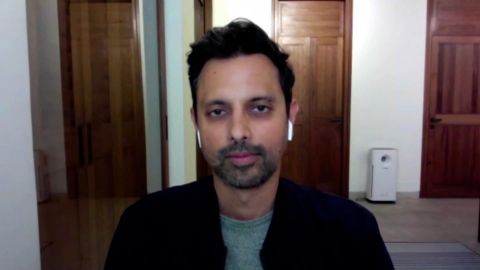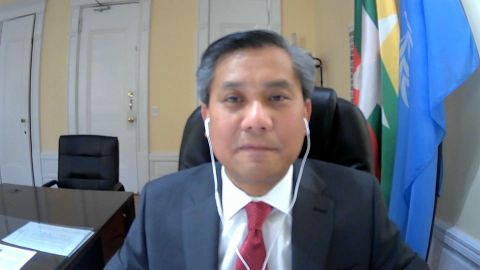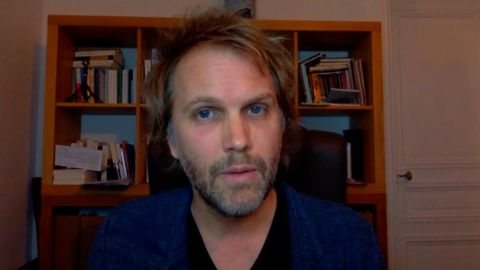Read Transcript EXPAND
CHRISTIANE AMANPOUR: And it’s really interesting, first of all, to know that you actually — your own — I think your grandmother was one of the inspirations for this story. Tell me about what made you want to do this.
FLORIAN ZELLER, WRITER/DIRECTOR: Yes, it’s true that “The Father,” before being a film, was a play. And when I wrote the play, I guess I was trying to go through a personal experience, because I had been raised by my grandmother. She was like my mother. And she started to suffer from dementia when I was 15. So I knew a bit what it was to go through this painful process, and to find yourself in a position where you are important in a way. You love someone, that you understand that love is not enough. But it was not about trying to tell my own story, because I also knew that everyone is related to this kind of painful issue, meaning that everyone has a grandmother, or everyone has a father, and everyone has a — or will have to deal with this dilemma, which is, what do you do with the people you love when they are starting to lose their bearings? So it was more to share those emotions with the audience. And that’s really the reason why I made the decision to make that film.
AMANPOUR: And, honestly, I think we have heard even more about dementia and the fragility of elderly people throughout the pandemic, because so much of that is taking place in the care homes and so much death and illness has happened there, that it’s really entered the global consciousness, maybe more than it might have done before. Can I ask you, though, because — well, related to that, you kind of put the viewer into the head of the patient, Anthony, you have called him — and we will get to the name in a moment. And the film, you really play with space and time and different characters to — I guess to confuse us as well and to make reality very intangible for the viewer. Talk to me a little bit about how you did that.
ZELLER: Yes, it’s true that the idea was to put the audience in a unique position, as if they were trying — as if they were going through that labyrinth, because I wanted “The Father” to be not only a story, but also an experience, an experience of what it could mean to lose everything, including your own bearings, as a viewer. So, it was the narrative taken from the play. But what I didn’t want to do was just to film a play, and to find a visual way to play with the feeling of disorientation, as if, in a way, the viewer were in Anthony’s mind, you know, and in order to experience what it could mean to doubt about what is real and what is not real.
About This Episode EXPAND
Ambassadors Kyaw Moe Tun and Barbara Woodward discuss the military coup in Myanmar. Filmmaker Florian Zeller explains the inspiration behind his BAFTA-nominated film “The Father.” “The White Tiger” producer Mukul Deora joins Hari Sreenivasan to talk caste, class and globalization.
LEARN MORE



